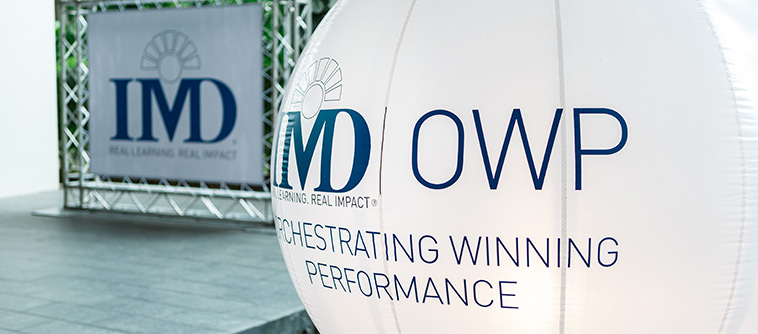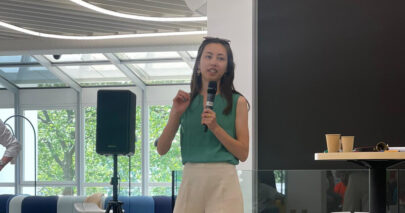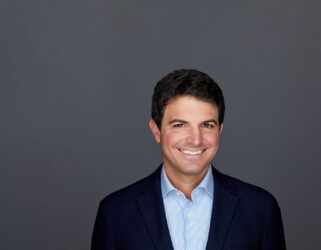
There are 120+ executives representing more than 20 countries at the Capella Hotel in Sentosa, Singapore, where a new group of faculty experts arrived this morning armed with the mission to stretch, expand and challenge executives’ thinking on their fourth day at OWP.
John Weeks invites us to take a deeper look at organizational behavior, something we are probably unaware of as we go about our day-to-day jobs at the office: Take organizational culture; how can we be more intentional and preserve what is good and change what is less good about it? First, Professor Weeks makes us think, what is corporate culture – really?
“Culture is what people say and do when they think you are not looking”
Culture just simply grows from what we say or do, how we behave at work, with our customers, and our co-workers. A lot of it is pre-determined consciously by management or the CEO as they build an environment they believe will be conducive to the type of organizational behavior they wish to have.
Is a strong corporate culture detrimental to a company’s performance or the contrary?
It would seem logical or even natural to assume that a strong culture would determine a company’s success or effectiveness – but a strong or very tight office culture can also be a risk factor for less-satisfactory employee performance.
Now the benefits: Like Facebook or Starbucks where you can expect similar behavior whether you are an employee or customer in Singapore or Silicon Valley – many company cultures give the impression that they are geographically agnostic. In an ideal world, a strong company culture is more predictable and therefore comforts customers as well as employees with consistency of behavior.
Other benefits include the fact that it is easier to scale up business and collaboration across time-zones in the medium to long term. Professor Weeks explains that a stronger corporate culture often translates to lower workforce turnover.
On the flip side, too strong of a company culture creates a risk of discouraging creativity or critical thinking through too much control or conditioning, as employees have to work hard to conform. An idea that resembles the concept of Groupthink: A psychological phenomenon that occurs within a group of people when the desire for harmony or conformity results in irrational or dysfunctional decision-making.
Ultimately, there are correlations between a company’s culture and its corporate success. The challenge is to figure out how do reap the benefits without the downsides. Professor Weeks offers a solution: Keep your non-negotiables in small box and don’t let it grow too much. Leaders should be more selective with what they want to become part of their culture while being careful not to put everything in that box. There has to be some room for individuality and confidence.
Earlier in the week we had the chance to view Japan through a new lens during a session titled: Challenges and the way forward for the next generation
Dominique Turpin and Naoshi Takatsu, IMD Managing Partner, Northeast Asia, co- directed the session, which gave a 50-year overview of Japanese business. With their guests, they provided a long-term and fresh perspective on Japan’s challenges and opportunities.
A panel of young progressive business leaders, who are transforming the Japanese and global business landscape, were invited to address the class. These included Mr Yasunori Naito: CEO of Uzabase Inc’s Speeda business in Asia., Mr Hitoshi Ode: Corporate Vice President of Calsonic Kansei, and Mr Yuichi Kuramoto, CEO of White Motion.
Naoshi opened by sharing an overview of the Japanese economy over the last 50 years. It has been characterized by high growth (up to 1990) and the “lost decades” where it was challenged by globalization. Dominique focused on the opportunities such as a remarkable alignment of government agencies, research bodies and businesses, under the concept of “Society 5.0”, focusing on autonomous mobility, health and caregiving, as well as the prevention of natural disasters.
Ms Junko Ishii, Managing Director of JETRO Singapore then provided insights as to how the government agency JETRO (the Japan External Trade Organization) promotes trade and investment. If you’re thinking of Japan as an import source or export market, or if you’d like to bring your business to Japan, this is the place to start. The agency has adapted its offering to stay on top of market shifts by supporting start-ups and promoting foreign direct investment in Japan.
Naito leads the team in Singapore which is expanding Uzabase’s “Speeda” business of professional database systems from Japan to South East Asia.
Ode is trying to transform his company, a traditional Japanese automotive parts manufacturer, to become an important player in the automotive electronics domain.
Kuramoto is leading an initiative focused on automotive cyber security. With this, participants got fresh perspectives on changes taking center stage in Japan today.
The speakers are part of a generation of talented up-and-coming executives who no longer seek traditional and outdated “life-time employment”; They are eager to make their marks by coming up with unique ideas to stimulate the Japanese economy through their diversity of experience and expertise.
We are reporting live from the 2018 edition of OWP Singapore. The keynote speaker of the day was Rob Lilwall. A global adventurer and author, he discussed mindsets, courage, and resilience.
The program will come to a close tomorrow evening.



